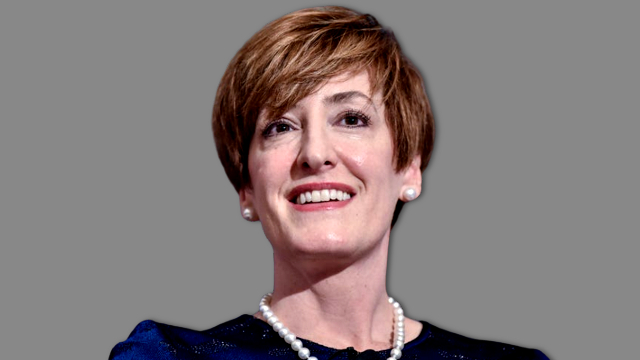Caitlin Long is the founder and CEO of Custodia Bank. In this interview we discuss the FTX Collapse, Crypto regulations, crypto winter, Bitcoins next halving, Grayscale GBTC, SEC Bitcoin Spot ETF, and more. Note, Caitlin could not speak to the Custodia Bank lawsuit against the Fed.
Transcription
Welcome back to the “Thinking Crypto” podcast, your home for cryptocurrency news and the interviews. With me today is Caitlin Long, who’s the founder and CEO of Custodia Bank. Caitlin, great to have you back on the show.
- Yeah, great to be back. We scheduled this a while ago, so it’s kinda interesting timing given all the rubber necking everyone’s doing on the FTX fiasco.
- Yeah, with all the things that have taken place this year, a lot, a lot of collapses, a lot of bankruptcies.
- Absolutely.
- You are certainly one of the folks I wanted to talk to on top of the list, because you’ve been look sounding the alarm for years about leverage and some of these companies not doing the right thing. And lo and behold, we find ourselves in the situation we’re in now. I would love to get your thoughts on FTX and what happened here.
- Well, it’s roadkill. Next. You know, candidly, all these companies that were operating risky business models were doomed to fail. And there are more coming. I don’t think we’re done yet. And it does look like that this was more than just a risky business model, it’s all gonna come out, I’m sure, over time, but good riddance to the grifters, all of them.
- Now, question for you though, because this one is a bit different though. Celsius, Voyager and so forth, were on different levels, but FTX with Sam Bankman-Fried, the branding, the positioning, the lobbying in DC, the bills that he’s trying to get past, and just a lot more are happening, a lot more connections. Do you think there’s gonna be heavy-handed draconian laws following this situation?
- Well, there always are, what’s the old Rahm Emanuel statement “Never let a good crisis go to waste.” This is, definitely the impetus for regulation, but frankly, the regulation that is coming is really needed. I know there are some folks in this industry who are just anti-regulation, but you see the costs of that into the regulatory vacuum that existed, filled a whole bunch of scammers, outright criminals, and risky business models that would never have been permitted. And the easiest way to point to data on that is that onshore Bitcoin derivatives are allowed to be levered no more than about two and a half times. Whereas offshore, even still today, there are exchanges offering 125 times leverage, okay? So that would never be approved onshore. Now, if the regulation’s reasonable and frankly enabling to the good players, I’m fine with that. I’ve been spending the last, really, the last four years working on and within a regulatory regime that is enabling to the good guys. And it adheres to the basic tenants of Bitcoin itself, which is respect for property rights. And if the regulation that comes out is respect for property rights gives some clarity on where the good players in this industry can provide services. Because let’s face it, yes, these are peer-to-peer technologies, but it is not easy to get peer-to-peer transactions unless you’re in, say, the Lightning Network, where now there’s routing technology built into that protocol for example, where you can go peer-to-peer, but that’s not true in Bitcoin or Ethereum for example. They don’t have routing technology built into the protocols, nor do I think they should. But net what that means is that most people get their Bitcoin and Ethereum through centralized exchanges, and that creates the centralization that the technology doesn’t, frankly, is aimed at solving, but the critics of our industry are right, that we recreated. Well, I say we, the the crypto industry broadly. I never was a part of that short-term oriented trading community. I thought, I as you pointed out correctly, for years I’ve been predicting these businesses will fail, and that the yields that were being offered on these leverage products were not compensating you for the counterparty risk. And it’s crystal clear that that’s indeed the case now, but back then it was hard to convince folks that that was indeed what the outcome was going to be. And I’ve just seen this rodeo multiple times in Bitcoin. It’s worth saying that in 2014, we had the Mount Gox collapse, in 2018, we had the Quadriga collapse, and in 2022, we’ve had the slew of collapses that we all know about. Keep in mind that those correspond to the four year Bitcoin cycles. So 2014, 2018, 2022, we’ve seen this rodeo before, those of us who’ve been around, and I did actually do a tweet storm about Mount Gox that was far more threatening to Bitcoin than FTX. But because in each of the four-year cycles, the dollar value at stake, and then just the number of people who are adopters of these technologies has increased marketly. What it means is that the scams and criminals have become even more audacious, right? And so my biggest fear, to be honest, and I know that there will be a lot of Bitcoiners who disagree with this statement, but my biggest fear is that we won’t have regulation and nothing will get done, and that the scams and the size of the consumer frauds that will occur in the next bull market, keep in mind, again, we’re on four-year cycles, the scams and the frauds that will occur in the next bull market will be even bigger, and that they will spill over into the traditional financial system even more than they did this past time. But good riddance to it all, this was foreseeable. And I guess maybe the last comment is it had nothing to do with Bitcoin itself.
- Right.
- The protocol is still just trucking away, adding blocks every 10 minutes.
- Yeah, absolutely. I was tweeting about that and telling people about that, the Bitcoin blockchain and all the other blockchains out there, nothing happened to them, they were functioning fine.
- Correct.
- With just the leverage and all these different things that were built on top of them. And look, FTT was a part of it, right?
- Yeah.
- Kind of taking a blockchain and building a centralized token, so I-
- There’s so much leverage that that permitted, right? Yeah. And it was actually built on a foundation of sand. We now know that.
- Yeah.
- I think that’s a safe statement to make. And frankly, a lot of the companies, the intermediaries in this industry, even some that are onshore US companies but especially those that are offshore and completely unregulated, they were built on a foundation of sand. They did not respect the ethos of Bitcoin which is all about property rights.
- So on that note, the silver lining to some of this. I’ve noticed a lot of exchanges are doing proof of reserves, Merkle tree audits, and there’s been a ton of Bitcoin leaving exchanges here in myself,
- Awesome.
- Whatever little I had on exchanges, I primarily self custody. I was like, I’m getting it all off.
- Yeah. Awesome.
- So what do you think about that trend that started?
- Oh, we’ve been calling for that for years. And in fact, actually in the Wyoming digital asset custody rules, proof of reserves is actually referenced as a requirement. There’s an audit requirement that includes proof of reserves. So what’s interesting is that it’s not just the proof of reserves, you also need the proof of liability, so you are trusting an auditor. It’s not foolproof, and there’s been some really great discussion. Nic Carter’s done some great work on this, Jesse Powell have been calling out some of the folks that are saying, “Hey, we’re, we’re doing proof of reserves.” and saying, “Hey, wait a minute. There’s a way to do it and there’s a way not to do it.” And so you do have to… It’s not a panacea, Jameson Lopp also has been pointing that out, it’s not a panacea. But it’s certainly better than nothing, and it’s certainly better than having an auditor, right? I mean, one of the things that came out about the FTX fiasco is that some of the legal entities there actually were audited.
- Yeah.
- And yeah, so, I mean, that happened in Enron. I mean, I’m old enough to remember a lot of those accounting scandals, and yeah they were audited too. But the fraudsters were able to pull the wool over the heads of the auditors. And that’s one of the challenges when you have a sprawling global organization that doesn’t have a commitment to transparency, what happens is that the auditors don’t get complete information, and then they end up making mistakes. And it does appear that there were mistakes made here.
- So, as far as next steps for the governments and the regulatory agencies, there’s hearings happening with Congress, and there’s more to come about FTX. I’m sure they’re gonna do something. I don’t know if we’re gonna get the full regulations that we’re looking for to put the guardrails in place. But is it also, the industry needs to come together, maybe there’s representatives from each exchange, they form an association and we help police each other? And while not fully depending on the SEC or CFTC to police us, I don’t know-
- You know what’s so interesting is that there have been so many attempts to do exactly that. And the problem is that they tend to get co-opted by one of the bigger players. And by the way, FTX was itself behind all this. They wanted, as you know, you correctly pointed out, there was a lot of lobbying, both political parties took huge donations from FTX, and FTX was actively involved in shaping legislation. And boy, there were some good things there, but one of the things they wanted is exactly the question you were asking, which is a self-regulatory organization that they would control. So we’ve seen the splintering of the lobbying organizations, the industry trade associations in this industry because of disagreements of over who was involved in that. So I’m not optimistic that we’re gonna be able to bring it together now. I really am not. I think most companies are ultimately gonna have to do their own work. But there’s been a lot of education done by those trade associations in Washington, DC. And I just talked to someone on the Hill this morning, it does sound like there will be an attempt to bring a Stablecoin bill through Congress before the end of the lame-duck session, so before the new Congress is sworn in January. So, let’s see, I’m not optimistic that anything will happen, but the impetus for it is there, and as long as it’s reasonable and it’s respectful of property rights, and really does weed out the fraud but enable the good players, then again, I think there’s no reason for us to fear it. Look at the Wyoming laws that were put together with that ethos in mind. What did the Wyoming laws do? Very basic fundamental things that still need to get done nationally in the United States. They defined digital assets as property, they defined the commercial law obligations of the parties, and how a financial institution that lends against the digital asset can create an enforceable lien, they define the tax status. Those things are meaningful and they’re enabling. That’s what I mean by enabling legislation. And so, as long as it’s not all just a hammer, as long as the industry gets some benefit out of it as well, which frankly will benefit the consumers, these are all win-win things, it’s not a zero-sum game. and I do think that we can get appropriate legislation that will pray keep out the scammers, because I do fear we’ll be in another… Well, I do fear that the bigger scams and even bigger crimes are gonna be committed in the next bull market. And we’ll be in another bull market in about two years if past this prologue. I do believe it will be, because the four-year cycle in Bitcoin is fundamental, and it’s tied to the happening as we know. A lot of outsiders would love for this whole industry to just go away, right? You’ve seen the ECB this week saying, “Hey, crypto’s on its last gasp, it’s going to go away.” Well, I saw a lot of people on Twitter setting up reminders for a couple of years from now to see how accurate that ECB statement was. I don’t think it’s going to go away, these four-year cycles are fundamental. And if passes prologue, then we’ll be in another bull market in a couple of years. But my fear is that nothing will be done, and the problems will just get bigger and bigger.
- Hmm. Now you are a Wall Street veteran. You’ve seen traditional finance, now you’re in crypto. Do you see this as this situation caused by FTX and Celsius and so forth, kind of an opportunity opening up for these big folks like BlackRock and Nasdaq, and BNY Mellon and the list goes on and on to come in and say, “Okay, let’s kick the kids out, and the adults are here, and they’re gonna take control of this market?”
- You know what’s interesting is that they still are in this, as Andreas Antonopoulos would call it, corpo coin mode, right? They want the permissioned versions, they don’t like the permissionless versions. And I’m spending a lot of time on that particular issue. And there’s a reason why the regulators and the incumbents really do need to dig in on permissionless blockchains. Now’s the time for them to lean in, not to retreat. And lean into permissionless blockchains specifically. And the reason is that they’re starting to scale, right? Look at the Lightning Network, you can now get Visa level throughput and latency on the Lightning Network. It’s still very small, but it’s scaling faster than the US dollar Stablecoin scaled in their early years. And so what does that mean? It means that because of the way Lightning works, lightning is an escrow-based protocol. You can basically just transact any fiat currency through Lightning by saying, “All right, if I want to Bitcoin’s around 16,000. If I have a $16,000 payment, then there’ll be a $16,000 escrow in a Lightning channel, and that’s me effectively moving US dollars. It’s just collateralized by Bitcoin.” Right? And so the impact of that is the regulators really, if they want to keep ownership of monetary policy, it’s gotta be inside the banking system. And again, I’m sure there, some of your listeners are going to be cringing saying, wait a minute, “We joined this in order to keep the centralized intermediaries out.” We talked earlier about why some of them will still need to be there, the other is that… The hyperbitcoinization, we’re not ready for it, we still have a lot of work to do on better user experience, on improving self custody. We, as an industry for… And again, I’m defining the Bitcoin industry specifically here, we still have a lot of engineering work to do to be able to scale it through the Lightning Network. It’s not ready. And my big fear is that it’ll kind of be like what’s happening with the green energy folks, right? They went too far too fast, and energy prices spiked as a result because the infrastructure wasn’t there yet. It’s not ready yet. One of my acquaintances had a nightmare story about driving an electric vehicle, couldn’t get it charged, and ended up have taking something like 12 hours to drive what normally would be a one-hour drive because of the charging issues, right? Well, that’s because the infrastructure’s not there yet.
- Right.
- And this is exactly the point I’m making, that hyperbitcoinization, it’s not good for anybody if it happens too quickly. But I’m a huge fan of this technology, and it will happen regardless of what we think about how fast it should happen, it’s gonna happen on its own. And I’m certainly part of the builders who are trying to facilitate a smooth transition to it from the incumbent system. But the incumbent system’s gonna be around for a long time. Now, I don’t think it’s gonna go away tomorrow. And if it did, then it would be like the disruptions that we were just talking about in say, electric vehicles, you’re gonna have a lot of problems that would be better if we transitioned a little bit more smoothly over time.
- Sure. And we’re seeing a lot of them are taking blockchain technology and building with it. I mean, JP Morgan, JPM Coin, right?
- Right.
- They’re trying to build-
- Corpo coins.
- Yeah, corpo, yeah, exactly. They’re trying to build their own. Are there any bills that you’re a fan of? I know like the Lummis-Gillibrand bill is a solid one, there’s others that on the Republican side and so forth who have put forth like Token Taxonomy Act. Are there any bills that you think that could be pass or you’re in favor?
- Well, I don’t know all of them. I haven’t spent a lot of time reading through all of them. Lummis-Gillibrand really does take the Wyoming approach. And what I find so fascinating is Lummis and Gillibrand have become friends, from what I understand. I have met them together once. They’re both really smart lawyers, both women but from opposite sides of the aisle. And super interested in this technology, in doing it in a reasonable way. And coming from New York, which is the financial capital of the world, and Wyoming which is the smallest state by population, but is the one that did get out ahead with ahead with a reasonable enabling regulatory regime for digital assets. Senator Gillibrand understood that. As I understand it, she’s the one who reached out to Senator Lummis.
- Wow.
- So it’s such an interesting mix. You’d look at it and say, “Wow, strange bedfellows that come from opposite sides of the aisle, but actually, they really do have a great deal of respect for each other and have a great deal of agreement.” And so that bill, obviously, because it builds on the Wyoming structure, I think it would be an effective bill. Senator Lummis has been really the best spokesperson, I think, on Capitol Hill to defend these technologies. And she has not at all lost her steel for defending the technologies, but doing it in a reasonably regulated way, including solving the SEC and CFTC issues.
- So on that note, there’s a lot of conversations, a lot of back and forth, sometimes some fighting over this, and that is Bitcoin and altcoins I hold both, I’m a big believer in Bitcoin, it’s actually pretty much like my largest holding, and I have some altcoins as well. I understand there’s gonna be more than just Bitcoin because there’s smart contract technology out there. However, you got the question of what’s a security? what’s a commodity?
- Yeah.
- Yesterday, CFTC chair, he kinda backtrack and said, “Bitcoin’s the only commodity.”
- Yeah.
- So what does that leave altcoins? Like, how do we move forward? Look, they’re in the market, they’re here, they’re being adopted, they’re being built on globally. So what are we gonna do?
- I don’t know. And it’s an interesting question. This is one of the risks with the Ethereum fork that happened earlier this year, the merge. And because basically… Jay Clayton had previously made the statement in a speech while he was SEC chair a few years ago, that certain protocols could achieve decentralization, even though by definition none of them start out decentralized, even Bitcoin didn’t, right?
- Right.
- But they could achieve it over time. And then by changing the consensus mechanism through the hard fork, the merge, it arguably opened that whole door again. And so it’s not a shock to me that the regulators aren’t putting Ethereum in that category while they were a couple of years ago. But this is exactly why the regulations need to be clarified. I don’t agree with the statement that it’s clear, it’s absolutely not clear. And there are two things that need to be clarified. I’ve thought all along that digital asset intermediaries would ultimately be licensed in the United States as either banks or broker dealers. And those are the two things that need to be clarified. Obviously, Custodia, my company is working on the bank side, it doesn’t get as much attention certainly from the trading world as the SEC side. But the SEC has not been green lighting special purpose broker dealers, and we haven’t seen the bank regulators green light special purpose banks yet either. Those are the solutions. That is how this is gonna get done, and I think that that ultimately makes sense. It is putting a square peg through a round hole to have traditional banks and traditional broker dealers get involved because the regulatory regimes that apply to them just don’t work. I’ll give you an example. We’re seeing it in the banks right now, that the bank digital assets, there are risks that they didn’t know about that are coming to light and it is causing some losses in the traditional banking system, whether it’s write downs on loans to bitcoin minors, write downs on loans against digital assets, the whole commingling of bank accounts question that’s out there. But the big thing is that none of these banks are invested for a bank run where the 100% of their digital asset deposits are withdrawn in the span of a few hours. And when we saw the… We’ve seen two Stablecoins collapse in the span of six hours this year. And so I think that’s the test the banks need to be running, but if you think about the old business model in banking, it’s borrow short and lend long. Well, that’s what traditional banks are doing. They’re borrowing short and lending long, they’re offering demand deposits which is borrowing short and then turning around and making car loans, auto loans, student loans, mortgage loans, right? And then all of a sudden, if there’s a bank run, they don’t have liquidity, it’s the old… it’s a wonderful life situation, right? So, I mean, that’s pretty basic stuff. And yet we’re seeing that actually happening in the traditional banking industry because it hasn’t been equipped to deal with assets that settle so fast or could end up with an intraday bank run. I’ve talked a lot about this as one of the reasons why the Wyoming special purpose banks have a 100% reserve requirement and cannot lend, they’re designed to be able to survive an intraday bank run. And so far, the risks that we’ve seen in the banking industry have been pretty concentrated. They’re there, they’re bigger than people realize. And we’re not done yet with the potential contagion risk. There are a lot of situations happening behind the scenes that I’m aware of with fintechs for example, that had exposure to some of the bankrupt entities. They’re gonna be write-offs announced by some of the banks that served this industry. It looks like so far, none of them have had a good old fashioned bank run and knock on what they won’t. But I think this was a real test of just what went right and what went wrong, and whether putting the square peg through the round hole made sense. I don’t think it does for that exact reason. There are risks out there that the regulators can’t see. And I think the same is true for broker dealers. So for both banks and broker dealers, the special purpose versions of these licenses make a lot of sense. We are dealing with a different type of asset that moves very quickly. And the regulatory regime that was set up for analog banking and securities is you’re settling probably next day at the fastest. You can get Fedwire through in a few hours, but that’s not programmable. But ACH takes a couple of days, and securities transactions it’s T+2 day. In digital assets, you’re talking about settling in minutes.
- Yep.
- Different animal. And the traditional requirements for banks and broker dealers really just don’t apply. It is a square peg round hole situation, and I’m hoping that the special purpose versions do get enacted by Congress.
- And the point you brought up with Jay Clayton, and I think it was Bill Hammond too, they both said, to your point, “An asset can start as a security, but over time morph into, become decentralized, become a non-security.” But why isn’t the SEC kind of opening the door and saying maybe like Hester Peirce’s proposal.
- Yeah.
- “Here’s a sandbox. Come show us what you’re doing, play in the sandbox, and then let’s put a timeline on when you can become decentralized or else you are a security.”
- Yeah. That is exactly the clarity. It’s a great question. This is exactly the clarity that I would hope that either Congress or the SEC gives. What you have happening now is that they’re both pointing fingers to each other saying, “That’s your responsibility.” Congress is saying, “Wait a minute, you have the authority SEC to make those rules.” And the SEC is saying, “No, we want guidance from Congress.” And it’s funny because I’ve defended the SEC against criticism from this industry for its heavy hand. It is unfortunate that the regulations that they’re basically regulating through enforcement actions, which is a really hard thing to do because you don’t really know where the guardrails are. So I’ve been critical of them for that and also the GBTC situation. But I’ve defended them more often than not that they’ve actually had their hands pretty hands off this industry. And now they’re getting critique rightly so for having missed a lot, and so here we are.
- Well, Caitlin, but I think people look at it and they’re like, “Wait, Sam Bankman-Fried was in your office, FTX was in your office,”
- Yes. Apparently.
- “Why weren’t you checking in on Alex Mashinsky and Celsius and what the hell Luna was doing and also Voyager? But you’re targeting Kim Kardashian? Really? That’s the highlight of the year for the SEC? And in this Ripple lawsuit, whether right or wrong.” It’s like, but what about the people who are robbing the bank? I mean, I don’t know.
- Yeah, that is what the outsiders look at, and say it just doesn’t make sense, that the priorities are misplaced. But I’ll tell you one of the ways that the agencies think about that is they go after the low hanging fruit and that’s the regulation by enforcement. It is frustrating because it does seem like it’s an uneven application of the rules, but they only have so much in the form of regulatory resources to go after the bad actors. They don’t have enough, in fact, actually, one of the things that if we really wanted to police this industry more, is that we would have more fraud investigators at the FTC. No one ever talks about the FTC, but the FTC is the one that actually, that’s the agency that probably should have been much more active in policing fraud, but they don’t have the resources. As a regulated bank, one of the other things that’s interesting for me to watch is that the bank regulators are the enforcers of the Bank Secrecy Act because they examine banks at least once a year. But the state money transmission companies, which include companies like Coinbase, Circle, and many others in this industry, they don’t get examined at all. Or maybe if they get examined, it’s once every three years, and it’s not a up periscope, down Periscope, complete transaction audit like banks get. And so the banks are really held to a higher standard, and the regulatory arbitrage is those who are using the state licensed money transmitter. So it’s a similar thing, we just don’t have enough enforcers. And again, I’m sure this is like nails to the chalkboard for some of the hardcore Bitcoiners out there who’s saying, “Wait a minute, we don’t want regulation at all.” No, that’s not the case. Even Murray Rothbard said, “A legitimate role for government is enforcing contracts disputes, enforcing property rights.” Right? And that’s what these regulators would be doing is enforcing the frauds which are violations of property rights. If you think about it that way, and instead of the whole, the way it’s usually framed in the war between the SEC and CFTC, I think it’s a much better way to think about it. Let’s get people who can actually make sure the property rights are properly enforced. And so much of, unfortunately, what’s happened with the regulators is that they’ve moved off that into things that are not connected to enforcement of property rights. So you’re getting into some gray areas there, and the regulators became effectively police forces that were politicized. And that’s part of the problem that this country has right now, yeah.
- For sure, yeah, yeah. And that’s something I’ve been talking a lot with folks, the regulators have become very politicized, and Gary Ginter is aligned with Democrats or whatever it is, right? And there’s folks who align with Republicans, and it’s like, just do your jobs, you’re there to protect investors. Yes, there’s scams, stop the scams, but don’t kill innovation at the same time and-
- Right.
- Yeah. Okay, final question for you, ’cause I know you gotta go. Do you think we are going to get a Bitcoin spot ETF approved before the next having.
- Great question. You know, I saw a really interesting Twitter thread from somebody and I wish I could give him credit. I apologize that I don’t recall the handle off the top of my head, but he was the one who made the observation that this scandal ironically increases the chance that a spot ETF is approved. And you know that I’ve been… I’ve said, “Look, that’s a double-edged sword, because the market makers in ETFs create naked short positions.” They’re relatively small, certainly a lot smaller than the naked short position that FTX built, which the revelation yesterday, that when when people bought Bitcoin, apparently FTX didn’t actually buy the Bitcoin, they just took the money and put a ledger entry into their own ledger for Bitcoin IOUs, right? That is literally paper Bitcoin. That is what happens with ETF market makers as well, but they’re not allowed to just do it for 100% of their exposure, right? It’s just a few percentage points around the edge. But this is one of the things that is a double-edged sword sort about ETFs. However, an ETF would certainly solve a lot of the leverage problems that were created by the GBTC premium. And this gets… I’m gonna get into the weeds a little bit here, but by the SEC. I wrote a Newsweek piece about op-ed piece in June, I believe, about this very issue by the SEC approving the GBTC as the only way for folks to be able to buy Bitcoin, to be able to get exposure to Bitcoin through their brokerage accounts. For six years, there were no competitors.
- Hmm.
- And it was a closed-end fund. So when you came through these bull markets, what ended up happening? The closed end funds, because there is a finite supply end up trading at a huge premium. Well, that premium went to a peak of 175% at one point, and it was very easy for the traders to come in and clip a risk-free arbitrage.
- Yeah.
- By arbitraging that 175%, right? This is a trade, this has been well covered by the industry press that a lot of people put on a lot of leverage on the risk-free arbitrate. And then when the SEC approved Valkyrie, which was the second fund that was in, I believe, January, 2021, you can go back and look at the premium in GBTC starting to gradually collapse because there was a competitor. Now it’s not an ETF, but ETFs don’t trade at premiums or discounts like we see the closed-end fund trading at. And it’s just been wild volatility, and 175% premium and now round about 50% discount, this is not friendly to investors. And my critique of the SEC is that if investor protection really is the mission, having a closed-end fund that trades at that kind of volatility relative to spot is not a good idea. It would’ve been better to have multiple versions of it. And the ETF, I do think would solve a lot of the problems. I think I saw someone else tweet out, “Can you believe all of the problems in Crypto trace to ultimately that all of the leverage problems in Crypto, trace ultimately to that GBTC premium.” Let’s hope that that gets solved so that we don’t have an even bigger problem going forward. But this person who tweeted previously that this increases the chance of the regulators saying, “All right, we’re gonna get some clean hands in here, some good guys, and we’re gonna do this right. And we’re gonna actually protect investors through having a truly regulated version.” Then I do think that would be helpful. So ironically, I think that person’s right, that it does increase the chance that an ETF goes through because you’re gonna get regulated players finally.
- Quick question. Quick clarification there. Certainly the futures ETF and the shorts ETF and so forth, those are not physically settled, but are you saying that,
- Correct.
- Even the physically settled the spot, there’s also a chance of manipulation with that as well?
- Absolutely. Yeah. Even the ETFs, that’s how ETFs work, the market makers have the ability to… They’re supposed to facilitate liquidity, and they are able to create more units of the ETF than they have underlying in inventory. So in this case it would be Bitcoin, physical Bitcoin, if there’s a physical Bitcoin spot ETF, especially if it’s physically settled. Now, if it’s physically settled, if they shareholders can convert to Bitcoin, boy would that put a cap on the ability for a market maker to go naked short. But if you read the fine print of every single ETF prospectus, it does say the market maker can take positions by creating more units in ETF than it has underlying under management. Yeah, it’s just part of the, what I would call a bucket of general fault tolerances that are built into the stock settlement system in not just the US, the same thing’s true in most of the developed world because these were originally analog systems, and it used to be that they settled in paper, and you can’t real time gross settle a paper transaction unless the two parties happen to be in the same place at the same time, which of course they almost never are. And so that’s why all these fault tolerances got built, it’s for operations to be able to catch up. And so we still have the vestige of that with T+2 day settlement in the stock system in the United States and in Europe. And so, yeah, that they can roll the dice because they don’t need to actually deliver for two days. But if there’s a spot ETF where it’s physically settled and people can convert their Bitcoin within minutes, boy, that would help solve the problem. The issue is, I don’t think that the stock settlement system in the United States could handle something like that right now. Again, this gets back to the point I was saying earlier about the special purpose broker dealers and special purpose banks that I think ultimately need to be created here because they have to be able to deal with settlement that happens in the span of minutes.
- Absolutely. Final question, I promise. Do you think Grayscale is gonna win this lawsuit against the SEC?
- Oh, I don’t know, I don’t make predictions about lawsuits. But yeah, I mean, look, something’s gonna have to break open here and whether it comes from Congress, whether it comes through the court systems, something’s gonna have to break open here.
- Caitlin. Always great. Thank you for joining me.
- Yeah, great to see you again. Thanks for having me on.







